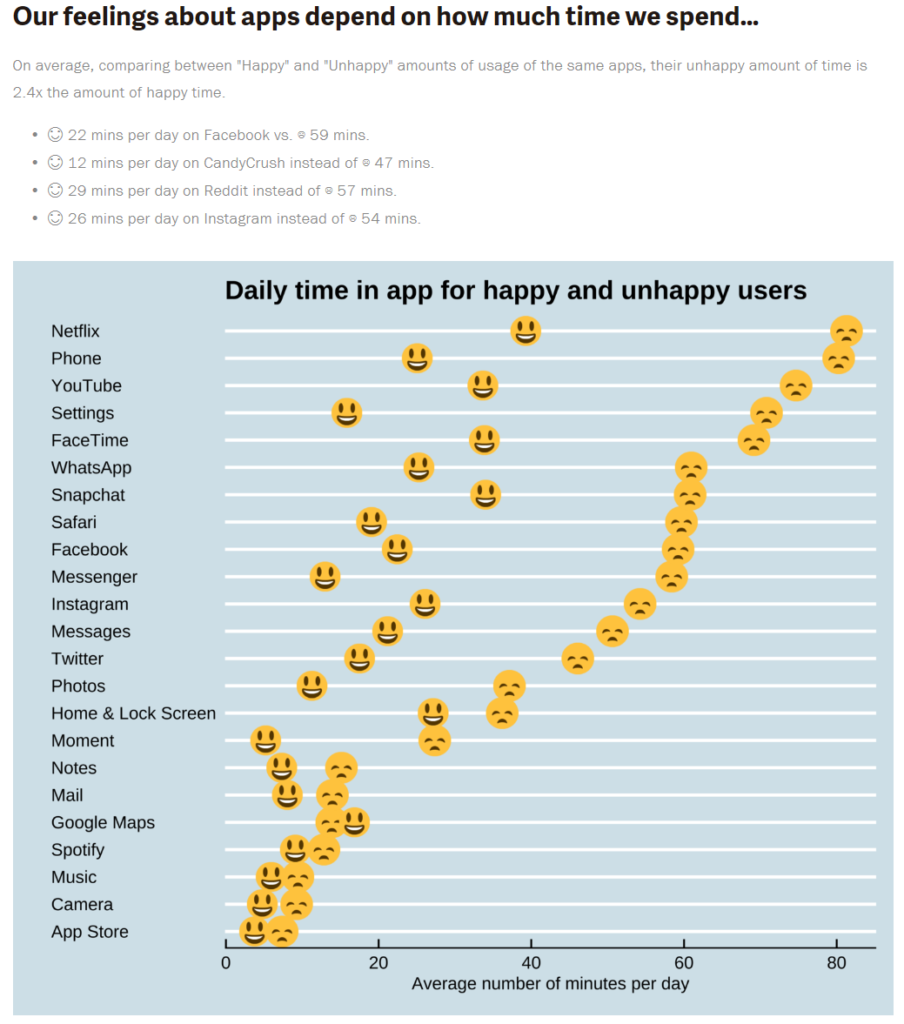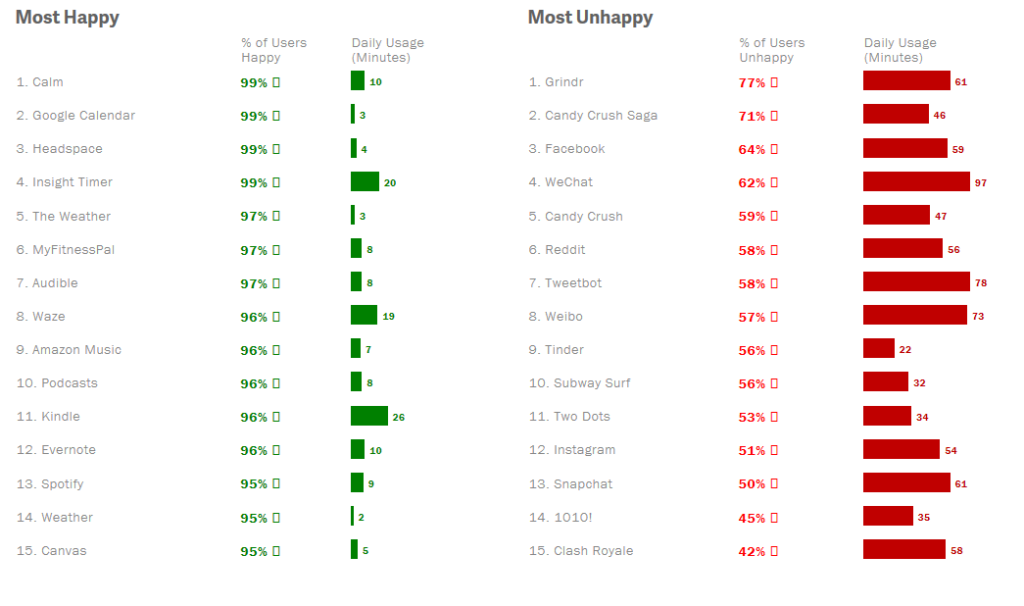
The dreaded where do I post it moment..
Earlier this year one of my favorite “go to” blogs, from the folks at @BufferApp posted this great article “What to Post on Each Social Media Platform: The Complete Guide to Optimizing Your Social Content”. It ended up being one of my favorite shares with friends and clients because it was a clean and simple read and made sense without a lot of sales pitch. In fact, they call out one of the more common mistakes folks coming over to the social media side of the house often do;
“It’s all right to post entirely different things on different platforms. In fact, it might even help you to boost your engagement.”
Yep, I couldn’t agree more. You don’t have to post the same content, everywhere or even the same way. That is what separates the dialogue of an organic and a “real-feeling” process from the more “assembly line” generated one. While rereading it today, I noticed I had some updates to what they originally posted and thought it worth mentioning my added thoughts:
Now, for those of you folks who haven’t clicked on the original Buffer Social’s post above, that list included these general guidelines:
My ” post it where ” version looks more like this:
Facebook: [Personal/Family/Friends] Primary Account: Videos and curated content
Facebook Business Page: Cross-posted content from your blog (or serving as a blog), videos and curated content.
Note: recently Facebook also added Jobs and it’s “Live” stream feeds. (Which is the place you should actually put your business or group program. They go on the “page” or “groups” and not as the formal Facebook page which is geared to the “person”. You can always lock down the primary account so no one sees it if you only want to focus on the Page.):
Instagram: High-res photos, quotes, Stories. Videos up to 60 seconds and GIFS
Twitter: News, blog posts, video (512MB file size and up to 30 seconds long), GIFs and interactive features like Twitter chats. They also updated the notifications tab and several other features. Here is a good read on that from SmartInsights.com
LinkedIn: Jobs, company news, and professional content; this is important – “Content” shared needs to be insightful, useful and illustrates your expertise or those you see as influencers. You can post a video on LinkedIn but it needs to be the URL link from an outside service such as Youtube or Vimeo (or from your branded server).
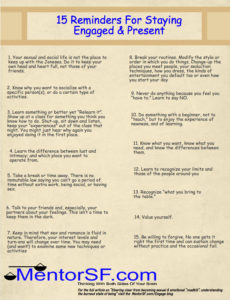
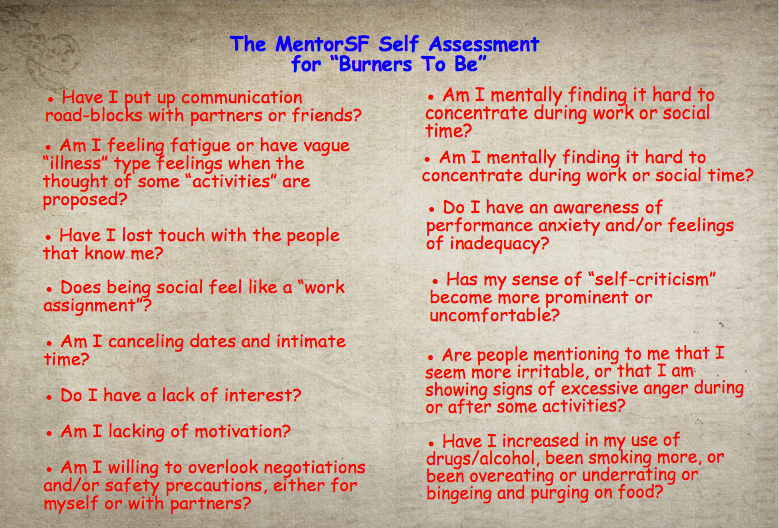 Pinterest: Infographics and step-by-step photo guides, “How to” and “Top 5” type visuals do really well on Pinterest. For instance, the image I used for the Preventing Burnout post is a good example.
Pinterest: Infographics and step-by-step photo guides, “How to” and “Top 5” type visuals do really well on Pinterest. For instance, the image I used for the Preventing Burnout post is a good example.
Google+: Cross-posted content from your blog (or serving as a blog), videos and image-based content. Blog posts that you want to rank on Google. And for those naysayers out there about using Google+, check out 5 Surprising Reasons To Reconsider Google+ (That You Can Act On Today)
A few last notes:
For those of you who ask about what “memes” are; I found this great quote from 2015; “GIFs and Memes, quick hint: GIFs typically take clips from movies or television shows where as memes make a topical or culture reference. Or, to be more specific: GIFs always do. Memes are typically static” and think they explain it pretty well.
Oh and by the way, if you haven’t yet, check out Buffer Social’s recent post from 9/26/2017 on The Ideal Cover Photo Size for Each of the Major Social Media Platforms.
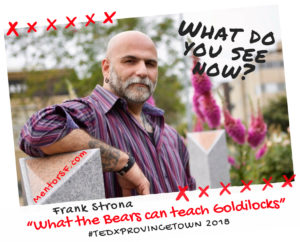
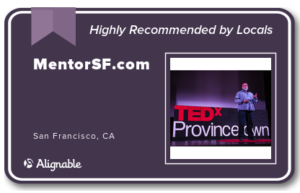

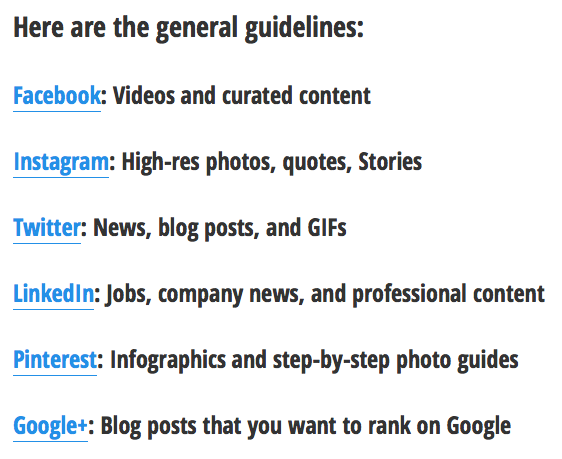

 Next time you’re in a conversation and you find yourself thinking about the next thing to say or what to buy for dinner.
Next time you’re in a conversation and you find yourself thinking about the next thing to say or what to buy for dinner. 


